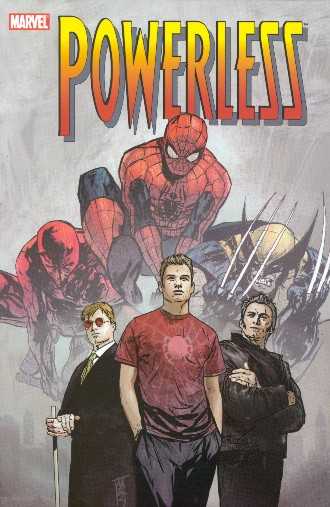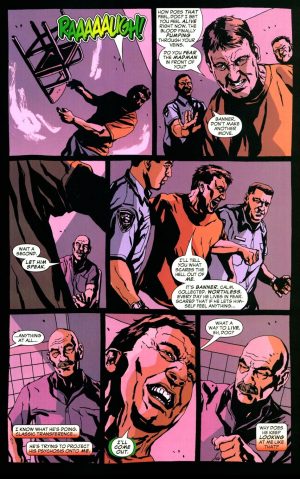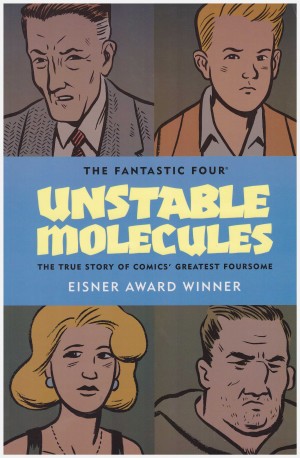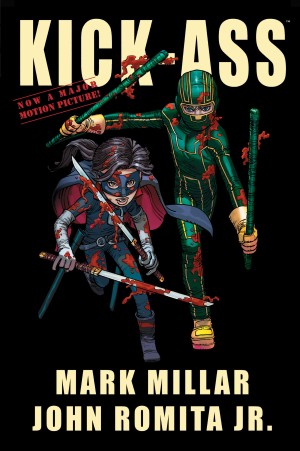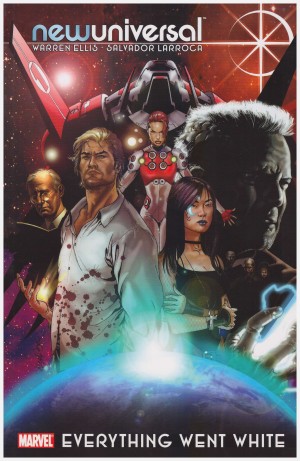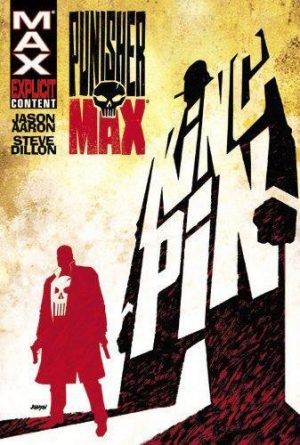Review by Ian Keogh
William Watts is a psychiatrist who’s just come out of a coma after a mysterious collapse. Among those he treats and meets are a whole host of familiar names for Marvel readers, some like Matt Murdock even with familiar trades. Crucially, though, none of them are superheroes, but Watts dreams of them being just that. As if the dreams weren’t disturbing enough, one night Watts’ sleep is disturbed by a thug wearing a device with three claws on each hand.
In Matt Cherniss and Peter Johnson’s plot, the likes of Peter Parker and Norman Osborn remain relatively true to the people they are in the real Marvel universe, but only Tony Stark, who’s working on an armoured suit, has any aspirations of super powers. Parker was bitten by a radioactive spider, but now just has a withered arm, while Bruce Banner is subject to terrible rages, but remains pink and human. The villains are villainous, though, and without superheroes to put a block on them the likes of Osborn and Wilson Fisk are nearly all-powerful. With Murdock just a blind lawyer he can be stopped by threatening his friends and taking him for a ride and dumping him in the middle of a cornfield. Don’t become too carried away wondering if these are the people we know somehow altered, or trapped without powers. In one sense they are, but the gist of the plot is to investigate what it is that constitutes a hero. Would you be the same heroic Spider-Man that Parker is elsewhere if you were bitten by a radioactive spider, or is he a hero due to his essential character, and being bitten just enabled him to manage that more effectively?
A world presenting readers with uncertainty is necessary, and Michael Gaydos gives us that, a dark and gloomy place to reflect what these ordinary people without super powers are going through, a world slathered in black ink. Because there are no easy super powered solutions to life, these people have it hard, and Gaydos reflects that in the art, giving us craggier individuals rather than a fresh-faced Foggy Nelson. A few costumes do appear, and Gaydos isn’t as convincing with those as they require a brightness that would usually jolt from the mood he’s creating, so they have to conform to that world instead.
Once it becomes apparent Powerless isn’t going to have the cast suddenly transform into Daredevil Spider-Man and Wolverine (although in Logan’s case there’s actually little difference), then Cherniss and Johnson play effectively with our knowledge of Marvel history. These ordinary people are being manoeuvred into situations that ended badly for their superhero counterparts, and a sense of unfolding tragedy is cultivated, increasing as the final chapters play out. On a meta level Powerless can be taken as a treatise on the power of superhero stories to show a path, to inspire us to be better people, but even without that it’s very effective drama well told all the way to a final revelation about Watts. The implied ending seems gratuitous, prioritising shock over consistency, but it can be ignored.
